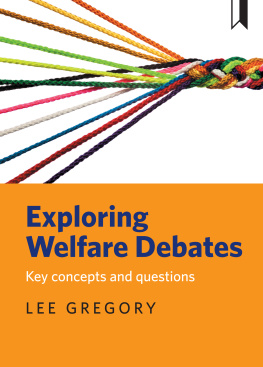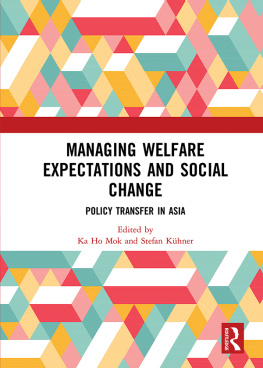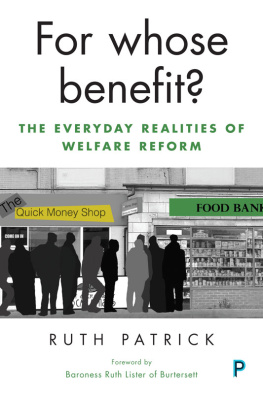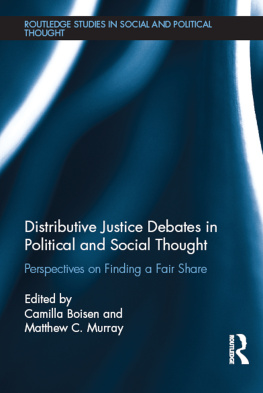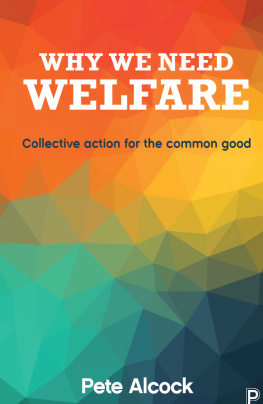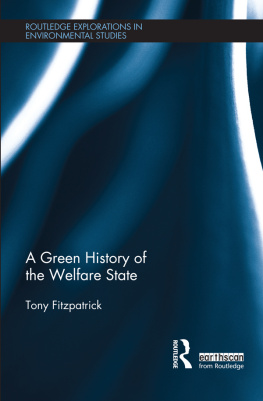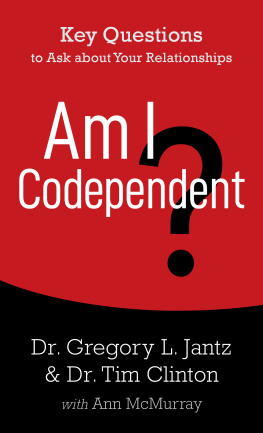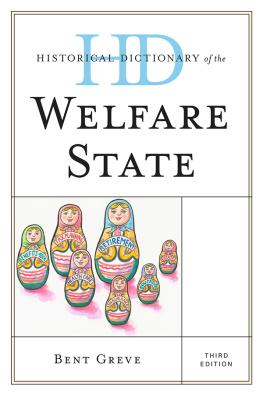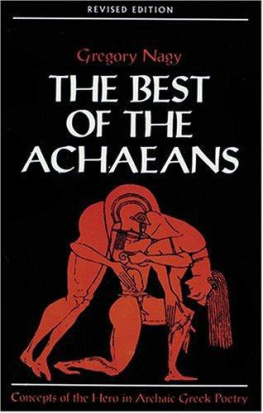Lee Gregory - Exploring Welfare Debates: Key Concepts and Questions
Here you can read online Lee Gregory - Exploring Welfare Debates: Key Concepts and Questions full text of the book (entire story) in english for free. Download pdf and epub, get meaning, cover and reviews about this ebook. year: 2018, publisher: Policy Press, genre: Politics. Description of the work, (preface) as well as reviews are available. Best literature library LitArk.com created for fans of good reading and offers a wide selection of genres:
Romance novel
Science fiction
Adventure
Detective
Science
History
Home and family
Prose
Art
Politics
Computer
Non-fiction
Religion
Business
Children
Humor
Choose a favorite category and find really read worthwhile books. Enjoy immersion in the world of imagination, feel the emotions of the characters or learn something new for yourself, make an fascinating discovery.
- Book:Exploring Welfare Debates: Key Concepts and Questions
- Author:
- Publisher:Policy Press
- Genre:
- Year:2018
- Rating:5 / 5
- Favourites:Add to favourites
- Your mark:
- 100
- 1
- 2
- 3
- 4
- 5
Exploring Welfare Debates: Key Concepts and Questions: summary, description and annotation
We offer to read an annotation, description, summary or preface (depends on what the author of the book "Exploring Welfare Debates: Key Concepts and Questions" wrote himself). If you haven't found the necessary information about the book — write in the comments, we will try to find it.
Exploring Welfare Debates: Key Concepts and Questions — read online for free the complete book (whole text) full work
Below is the text of the book, divided by pages. System saving the place of the last page read, allows you to conveniently read the book "Exploring Welfare Debates: Key Concepts and Questions" online for free, without having to search again every time where you left off. Put a bookmark, and you can go to the page where you finished reading at any time.
Font size:
Interval:
Bookmark:

A catalogue record for this book is available from the British Library
A catalog record for this book has been requested
ISBN 978-1-4473-2655-7 hardcover
ISBN 978-1-4473-2658-8 ePub
ISBN 978-1-4473-2659-5 Mobi
ISBN 978-1-4473-2657-1 ePdf
Front cover image: Getty
Readers Guide
This book has been optimised for PDA.
Tables may have been presented to accommodate this devices limitations.
Image presentation is limited by this devices limitations.
CSA | Child Support Agency |
CTF | Child Trust Fund |
EU | European Union |
GDP | gross domestic product |
HE | higher education |
IGO | international government organisation |
IMF | International Monetary Fund |
IVF | in vitro fertilisation |
KWNS | Keynesian welfare national state |
LGBT | lesbian, gay, bisexual and transgender |
MEW | mixed economy of welfare |
MNC | multinational corporation |
MUD | moral underclass discourse |
NEF | New Economics Foundation |
NGO | non-governmental organisation |
OECD | Organisation for Economic Co-operation and Development |
SID | social inclusion discourse |
SWPR | Schumpeterian workfare post-national regime |
TINA | There is no alternative |
TNC | transnational corporation |
UN | United Nations |
UNDHR | United Nations Declaration of Human Rights |
US | United States |
WHO | World Health Organization |
Font size:
Interval:
Bookmark:
Similar books «Exploring Welfare Debates: Key Concepts and Questions»
Look at similar books to Exploring Welfare Debates: Key Concepts and Questions. We have selected literature similar in name and meaning in the hope of providing readers with more options to find new, interesting, not yet read works.
Discussion, reviews of the book Exploring Welfare Debates: Key Concepts and Questions and just readers' own opinions. Leave your comments, write what you think about the work, its meaning or the main characters. Specify what exactly you liked and what you didn't like, and why you think so.

